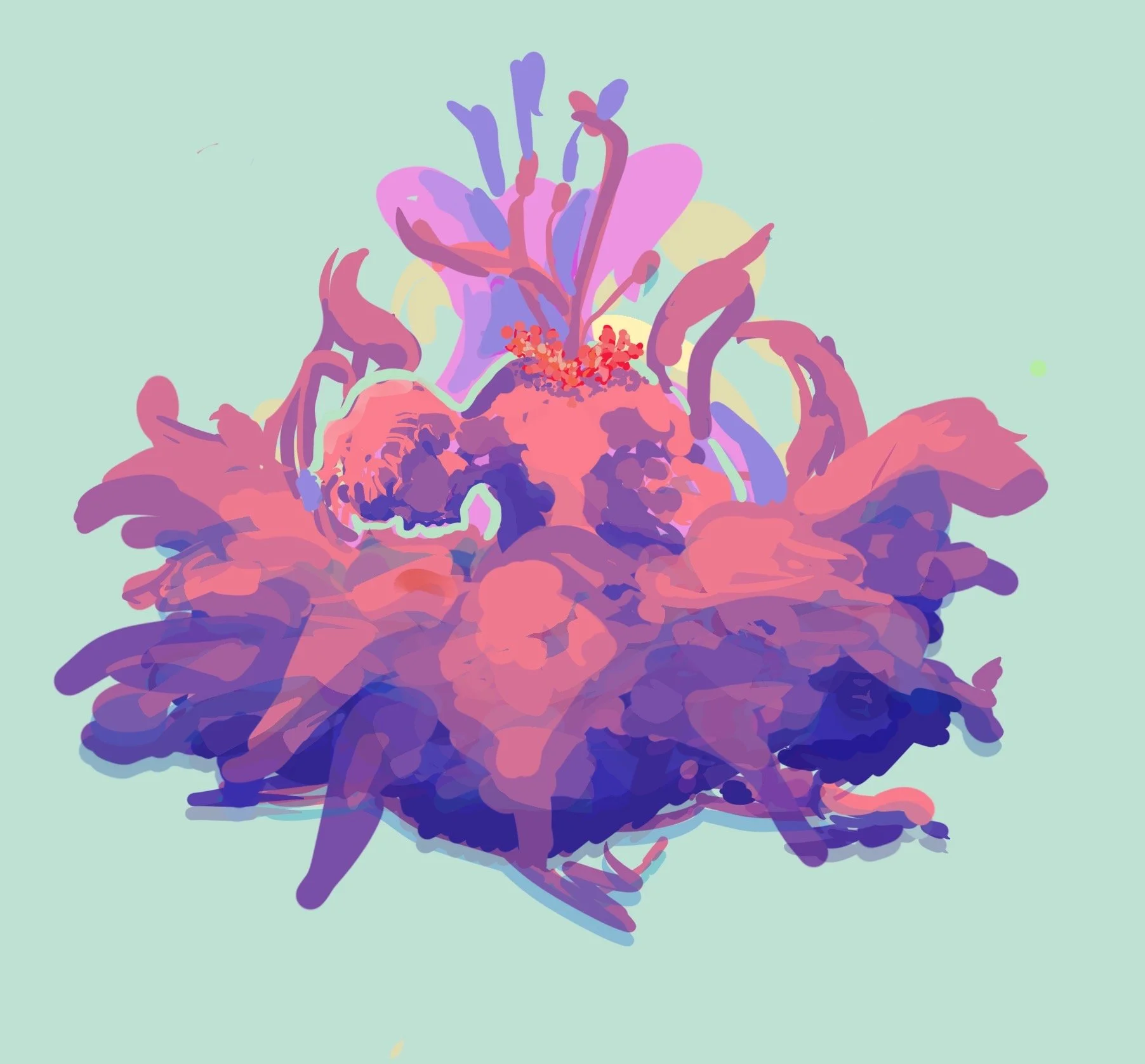My father used to say
do not write of love,
nor grief,
but daisies and hemlocks:
so slow their sway.
write of the
unfolding mist,
how the haze burned green,
swamp dew in a swollen sun.
do not write of us,
nor the fields
where we would sit:
leaf and light around us.
you would hold me
in the grass,
hold me then as you
could never now.
Untitled
all days are your days, my love.
some days are snatched violently
from your belly, but
all days are your days, my love.
For days and days
Effie, sometimes you hollow my body.
you pull my skin inward
(deepening without stretching)
until i am like air:
full of all voices
and burning only
once.
Effie, sometimes you dip your head.
you lay your lips
upon my chest
and drink
from me:
drink until
i am nothing.
Effie, sometimes you hollow my body.
for days and days
you rouse in me
a white rain,
a too-big sky.
i am too full.
i am engulfed.
please, stop.
you have already
opened me and
drunken from me
and swallowed me.
You are within me,
always. I see you,
alway, my sky-in-slow-falling.
Oh Effie, sometimes you hollow my body.
Last poem
I held her dying: sick, then
silence.
(she was so small in my arms)
April 22nd, 2021, 11:38 PM
what are you
supposed to do when someone
hands you
a poem and you
know it is about how they
want to die.
(in its hidden meanings, a mist rolled out and out: yellowed without light, and airless, and age-ached)
Death as an unclosed parenthesis
writing grief
is exorcism, he said.
(it has not exorcized for
i love you now more than i have ever loved you, father.
tiring grief
is wind, he said.
(wind—orphaned
from air, whispering through
daisies-of-the-valley:
i love you now more than i have ever loved you, father.
i tire writing grief.
(i miss our memories,
your holding of me, which is not memory, more like
warm flowers crumbling
in the
wind
Leptis Magna
You ain’t like the birds, not like a squirrel or a salamander.
You ain’t a wildflower (or a darkwoods either).
Closest thing is a great ol meadow, I think.
So open all things might pass through you.
(and you might know them in their movements
and they you, in your stillness.
and you might think this beauty
and you might share that beauty with me
on a bench in Leptis Magna where, it is said,
blood first kneaded into man; and where,
it is also said, man first humbled himself to hill and sky.
by Ezzat Abouleish

